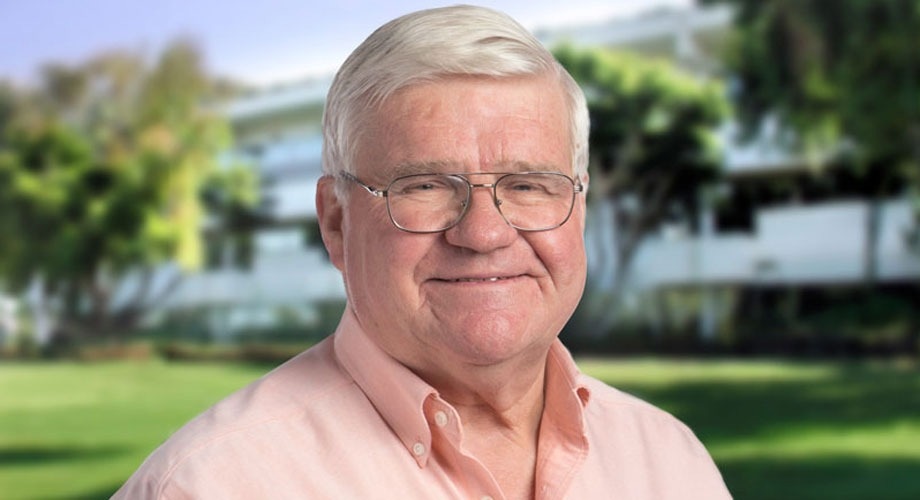Scripps Research professor emeritus John Johnson, PhD, has been elected to the National Academy of Sciences—one of the highest honors given to scientists. According to the Academy, members are selected “in recognition of their distinguished and continuing achievements in original research.”
 John Johnson, PhD. Image Credit: Scripps Research
John Johnson, PhD. Image Credit: Scripps Research
“Becoming a member of the Academy is a great honor for me and the 70 graduate students and post docs that have worked in my lab since 1978, as well as numerous collaborators at Scripps and around the world,” says Johnson, who is also the Eldon R. Strahm Professor of Structural Virology in the Department of Integrative Structural and Computational Biology.
The organization shares my commitment to helping the world through science.”
John Johnson, PhD, professor emeritus, Scripps Research
Johnson earned his doctorate in physical and inorganic chemistry from Iowa State University in 1972 and spent 23 years at Purdue University before moving to The Scripps Research Institute (now known as Scripps Research) in 1995. His lab investigates a range of viruses—including those that infect bacteria, insects and plants—and he has published several related studies. Much of his work used X-ray crystallography and, more recently, electron cryomicroscopy to solve the structures of intact complex virus particles.
During his tenure, Johnson published the first reports of icosahedral virus particles as building blocks for organic chemistry, bridging the field of chemistry with biology. And while combining chemistry with molecular genetics, he found a way to attach a range of molecules to the surface of a virus, thereby imbuing the virus with the properties of those molecules. This method is applicable to several scientific fields, including materials science, medicine and molecular electronics. It can be used to immobilize large molecules—and even whole proteins—on the surface of a virus. Even more, the technique was applied to build a circuit on the surface of a virus employing chemical “nanowires.” His lab also generated the first atomic models of an insect virus, a dsDNA bacteriophage and an archaeal virus that lives in the hot springs of Yellowstone National Park.
For his contributions to science, Johnson has been awarded the Distinguished Scientist Award by the American Chemical Society-San Diego. Johnson also served as a member of the Board of Scientific Counselors for the National Cancer Institute as well as the National Institute of Arthritis and Musculoskeletal and Skin Diseases, and on the council of the National Institute of General Medical Sciences In addition, he served on the editorial boards of several peer-reviewed journals, including the Journal of General Virology, the Journal of Molecular Biology, the Journal of Molecular Recognition, Structure and Virology.
Established by an Act of Congress that was signed into law by President Abraham Lincoln, the National Academy of Sciences has been in existence since 1863. As advisors to the nation, Academy members are required to provide scientific guidance to any US government body “whenever called upon.”
With the election of Johnson, Scripps Research faculty now hold 30 memberships in the National Academies of Sciences, Medicine and Engineering.